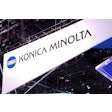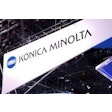Storage is a stubbornly expensive component of PACS implementation, generating about 30% of the cost of a typical digital image management purchase. Now, a company called InSite One is hoping to trim that figure substantially with the development of an archiving service known as Internet DICOM Express (InDex).
InDex will enable healthcare institutions to outsource all of their digital image storage needs, taking advantage of the lower costs and higher storage capacities available off-site, according to Richard Friswell, chairman and CEO of the Wallingford, CT-based firm.
"It's rare for a hospital to have archiving space for more than a few months of images," he said. "The irony is that a hospital makes a multimillion-dollar commitment to PACS, yet they only buy a few weeks or months of archiving to support it."
The core of the InDex service is a proxy redundant array of independent disks (RAID) server set up on-site at a customer's radiology department. Once it receives an exam from the imaging equipment, the proxy server creates a short-term storage archive, then transmits the study over the Internet or a virtual private network (VPN) to InSite's warehouse, where it's burned onto digital video disks (DVD) for later, offline access.
Online, local access to the image is available for the first 30 to 45 days through the on-site proxy server. After that, images can be retrieved as needed from the company's off-site DVD archives. InDex uses lossless 3:1 compression and a minimum 128-bit military-grade encryption technology. Images are stored at two locations to provide redundancy.
InDex can work with an existing PACS network, or provide digital image storage services for facilities without digital image management technology, according to the company.
Customers will pay for InDex through a fee-per-study model. In the first year of storage, each study stored with InDex will cost one cent per day. In subsequent years, annual storage will cost 24 cents per study. There are no setup charges or maintenance fees, Friswell said.
"Over seven years, that works out to average storage costs of 72 cents per study per year," he said.
InDex is currently undergoing beta testing at Hartford Hospital in Connecticut. InSite has also identified six charter facilities that will go online with InDex by mid-summer, and general availability throughout the U.S. is expected by the third quarter.
InSite, which was founded in June 1999 and made its debut at the 1999 RSNA meeting, is readying its distribution model as it prepares to commercialize InDex. At the Healthcare Information and Management Systems Society conference earlier this month, the company announced the formation of a direct sales force, currently operating out of sales offices based in Houston, Pittsburgh, and San Francisco. Other offices will follow. A dealer network is also being formed to market InDex. Six dealers have already signed on, and InSite hopes to ultimately have a network of 25 to 40 dealers, Friswell said.
Finally, the company hopes to market InDex through OEM channels. InSite is in active discussions with several prospective partners, according to Friswell.
"We believe that this concept is not a competitor to a PACS, but a useful adjunct to what an OEM can provide," he said.
Last week the company received $3 million in venture capital from investment firm Primus Venture Partners. Those funds will be used to continue building sales infrastructure and put the finishing touches on the service, Friswell said. InSite hopes to bring InDex to markets outside the U.S. by 2001. The company is also exploring the use of wavelet compression, Friswell said.
By Erik L. Ridley
AuntMinnie.com staff writer
April 26, 2000
Let AuntMinnie.com know what you think about this story.
Copyright © 2000 AuntMinnie.com















